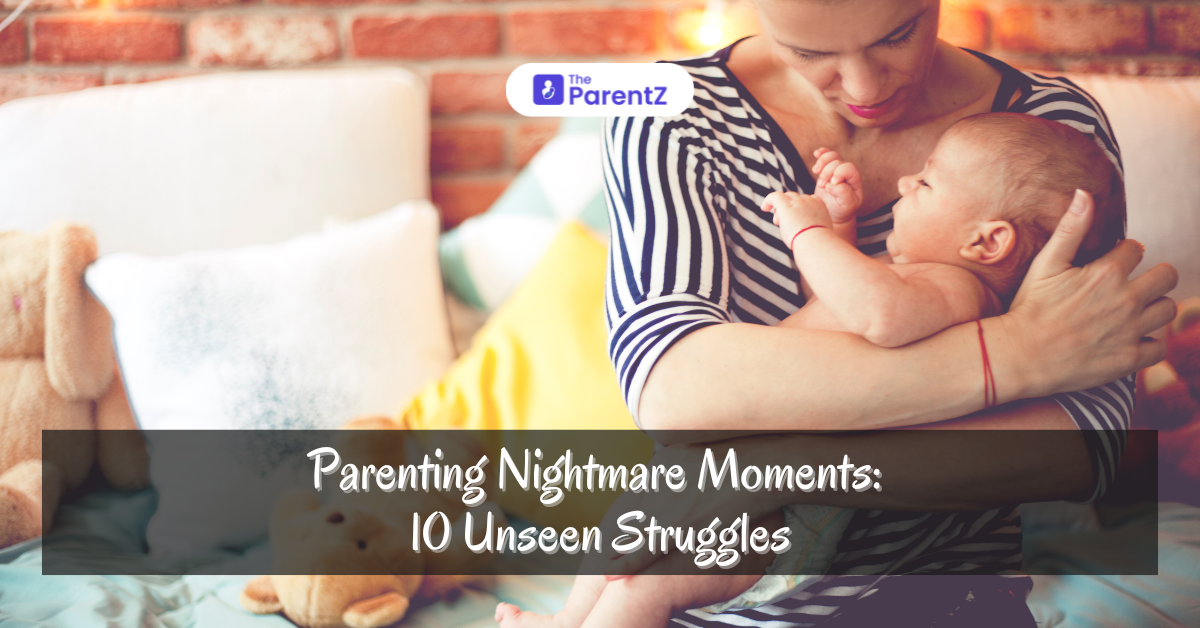Parenting is often painted as a bed of roses, filled with heartwarming moments and unconditional love. While these experiences undoubtedly exist, they are just one side of the coin. The other side, often shrouded in silence, is a landscape littered with challenges that can be utterly overwhelming. Let’s talk about some of these parenting nightmare moments, understanding that there’s no judgment, only empathy.
10 Unimaginable Parenting Nightmare Moments
The Weight of Expectations
One of the most insidious pressures parents face is the weight of societal expectations. The ‘perfect parent’ image, constantly projected by the media and society, can be a suffocating burden. When a child struggles academically, socially, or emotionally, the self-doubt that creeps in can be devastating. The fear of being labeled a ‘bad parent’ can lead to immense stress and, sometimes, even despair.
The Digital Shadow
The digital age has brought unprecedented access to information, but it has also created a new set of challenges. Parents grapple with the complexities of online safety, cyberbullying, and the addictive nature of screens. When a child becomes engrossed in the digital world to the detriment of real-life interactions, or worse, falls prey to online predators, the fear and helplessness can be paralyzing.
The Mental Health Maze
Witnessing a child’s mental health struggles is perhaps one of the most heart-wrenching experiences for a parent. Anxiety, depression, and other mental health problems can cast a long shadow over a family. The guilt, the fear of the unknown, and the feeling of being unable to shield their child from pain can be overwhelming.
The Rebellion Storm
The teenage years are often portrayed as a time of exploration and growth, but for many parents, it’s a rollercoaster of emotions. When a child’s rebellion manifests in destructive behaviors, such as substance abuse, vandalism, or violence, the shock and disbelief can be crippling. The question, “Where did we go wrong?” echoes in the mind, leading to feelings of guilt and inadequacy.
The Special Needs Journey
Raising a child with special needs requires extraordinary strength and resilience. The challenges are immense, from the initial diagnosis to the lifelong care required. The financial strain, the emotional toll, and the isolation can be overwhelming. There’s often a sense of grief for the life they imagined for their child and the fear of an uncertain future.
The Empty Nest Angst
While the empty nest is often seen as a time of freedom and relaxation, it can also be a period of profound loss and loneliness. For some parents, the departure of children marks the end of a significant chapter in their lives. Feelings of emptiness, regret, and purposelessness can be overwhelming.
The Sibling Rivalry
Sibling rivalry is a common occurrence, but when it escalates to bullying, violence, or alienation, it can become a nightmare. The pain of watching one child hurt another is unimaginable. Parents often find themselves caught in the middle, torn between loyalty and fairness.
The Divorce Dilemma
Divorce is a complex and painful process for adults, but the impact on children can be devastating. The fear of causing lasting emotional damage, the guilt of breaking up the family, and the uncertainty about the future can be overwhelming.
The Loss of a Child
No parent should ever have to experience the loss of a child. The pain is unimaginable, and the world can seem like a dark and empty place. The guilt, the anger, and the longing for their child can be consuming.
The Child as Caregiver
In some unfortunate circumstances, children become caregivers to their parents due to illness, disability, or addiction. The role reversal can be traumatic for both parent and child. The child’s childhood is sacrificed, and the parent’s sense of helplessness and shame can be overwhelming.
Conclusion
These are just a few of the many parenting nightmare moments that parents face. It’s important to remember that there is no one-size-fits-all solution, and every family’s journey is unique. Seeking support from friends, family, or professionals is crucial. Remember, it’s okay to not be okay. Reaching out for help is a sign of strength, not weakness.








Be the first one to comment on this story.